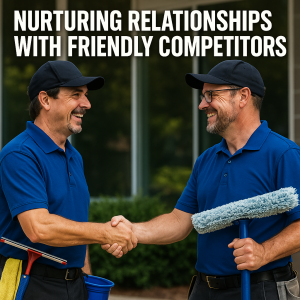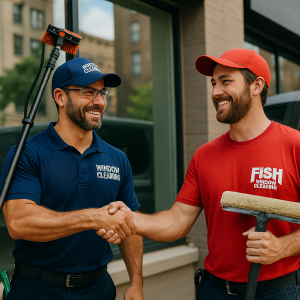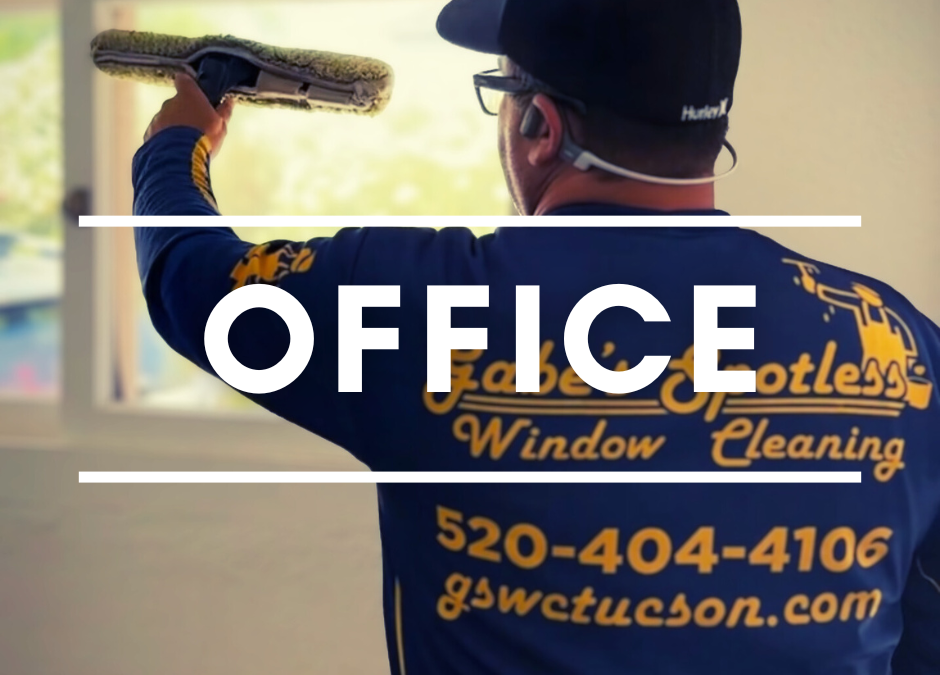“Link to your competitors and say nice things about them. Remember, you’re part of an industry.” — Robert Scoble, Author

Every small business owner interested in growth is looking to find a novel or niche way to find new customers. Of course, there are the traditional methods of advertising, and they are certainly important. However, one strategy that is often overlooked is the development of relationships with “friendly competitors” in your area for the purpose of growth and support. If you didn’t get your hands on the previous Gabe’s Corner, go back and read it when you can. I spoke about all the ways relationships with friendly competitors can counter-intuitively help your business. In this article, we will talk specifically about the smart ways to go about developing these relationships and how you can make inroads in a strategic and safe manner.
First off, it’s important to identify the potential dangers of getting “close” with competitors. Obviously, not every competitor is going to be interested in a mutually beneficial relationship. Some might even have ulterior motives and desire to use any information that you give them to gain an advantage over you. So, it’s important to protect yourself and the company from such data leakage, whether on purpose or accidental. That means never discussing topics such as pricing, profits, or marketing. It’s best that neither of you share or seek to learn anything best left confidential about your companies. Keeping a tight lip about sensitive subjects will help mutual trust to develop with minimal hang-ups.
Second, you need to thoroughly vet any company that you wish to form a relationship with. Remember, if you ever refer someone to them, you are vouching for them. If they have poor customer service, branding, and/or reputation, that will eventually come back on you. Look up their reviews on Google, Facebook, Yelp, and Nextdoor. Check their website to see if it’s up to date and if it’s user-friendly. If you know anyone in your networking circle who might have some experience with their service, call them up and ask them what they thought of the company. Whatever you decide to do, you need to do your best to ensure that your branding will not be affected negatively by referring to that company.
Ok, with those things out of the way, now is the time for the fun part. How can you begin the process of forming a mutually beneficial “friendly-competitor” type of relationship?
1) 1) Meet them in person. If you are going to form a beneficial relationship with a competitor, it’s important to meet them in person. Let them see that you are genuine and sincere in your efforts to know them. They are undoubtedly wondering what your motives are and if you are trying to take advantage of them somehow. Meeting in person in a casual business setting, like at lunch or for coffee, allows them to see that you mean no harm and are just trying to establish a friendly rapport with them. Make sure that your body language and tone are relaxed and the topics are of general business/personal interest. No need to get down to brass tacks unless there is an immediate connection and a clear vision of some type of reciprocation. The goal is to show each other that you have mutual respect and could be a good referral source in the future.
2) 2) Communicate clearly and regularly. Like any relationship, communication is the lifeblood of a solid “friendly competitor” agreement. It’s important to be clear about your needs and to check in every so often to let them know you are still there if they ever need help. As plans start to solidify between you two, make sure the requirements or expectations are clearly stated. In some cases where there is more than just a casual referral agreement, it may be prudent to get a contract written up so both parties are aware of what is required and there is a source to look to in the event of any disagreements. Even when no business agreement is reached and you have just made a new window cleaning friend, keeping in contact with them on a casual basis allows the door to be open for any yet unknown future projects that you might be asked to be a part of.
3) 3) Keep your end of the bargain. Now that you’ve made friends with your competitor, it’s important that you show by actions that you are a person of your word. If they send you a referral, make sure you take care of them. Let them know when you have made contact with their client and thank them for the work. Keep any promises you have made to them and let them know that you value the relationship. Most of all, don’t be sleazy and use their trust to gain an advantage over them in some way. You should view them as colleagues and show respect by earning and keeping their trust.
4) 4) Don’t ruin it! None of us like to be around a person who is rude, disrespectful, or inconsiderate. A relationship with a friendly competitor is by nature a delicate one. So, be positive when talking with them. Avoid bragging about your accomplishments or making light of some perceived deficiencies they might have. Do not give business advice unless they ask for it specifically. If they are a larger company than yours, point out positive characteristics you have observed and would like to imitate in your own growth. By being a source of positive reinforcement, you increase the odds that they will keep you in mind for future referrals.
5) 5) Identify niche markets. Although you both are advertising in the same waters, chances are there are smaller pools that you or your friendly competitor might be more interested in. So, talk with them. Perhaps there is a service they offer that you would rather not mess with? You may offer an ancillary service, like gutter cleaning, that they really wouldn’t want to offer. Or maybe you prefer to do larger houses and would rather refer the 2000 sq/ft and below homes out to someone else. I have one friendly competitor that hates cleaning solar screens so much that they send me all their jobs that have them. Find out what each of you brings to the table and use those things to fill the vacancies of service that you have. After all, you probably paid money to get that call. You might as well direct them to a person who will return the favor in the future. In that way, reciprocity can exist and there is no waste to those hard-earned advertising dollars that you have spent.
It will take time to find the right business people to develop such a relationship with. However, with the right attitude, you can develop and grow these mutually beneficial relationships that may last years. And sometimes, even when you meet someone and get along great with them, you might still not be a great referral fit. But that’s ok because we all need a little more positivity in the world. If the end result of your effort is that you just made a new friend in the industry, that is still a win in my book.

Gabriel Gutierrez
Owner and President
Gabe’s Spotless Cleaning Services, Inc.
Gabe’s Spotless Window Cleaning
(520) 404-4106


Recent Comments